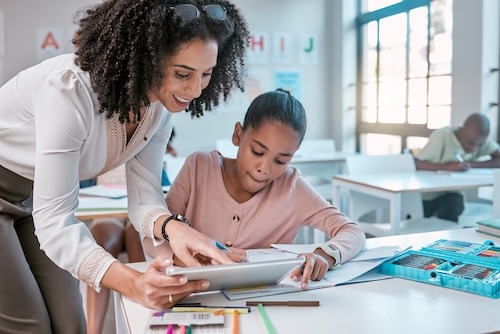The psychological dynamics between students and teachers form the foundation of effective educational experiences. These relationships extend far beyond the simple transmission of information, influencing motivation, engagement, and academic outcomes in profound ways. Understanding the psychological underpinnings of these interactions provides valuable insights for creating supportive learning environments that nurture both intellectual and emotional development.
Trust stands as perhaps the most critical element in productive educational relationships. When students believe their teachers are competent, reliable, and genuinely concerned with their wellbeing, they become more willing to take intellectual risks, engage with challenging material, and persist through difficulties. This foundation of trust creates psychological safety – a condition where learners feel comfortable expressing thoughts, asking questions, and making mistakes without fear of judgment or ridicule.
The concept of teacher presence encompasses the various ways educators establish themselves as authoritative, approachable, and attentive figures in the classroom. Effective presence balances clear boundaries with warmth and accessibility, creating an environment where students understand expectations while feeling supported in meeting them. Research consistently demonstrates that teacher presence significantly impacts student engagement, behavior, and achievement across all educational levels.
Attachment theory provides another valuable lens for understanding student-teacher dynamics. Particularly for younger learners, teachers often serve as secondary attachment figures who provide emotional security and a safe base for exploration. Secure attachments with educators can help children develop healthy approaches to relationships, regulate emotions effectively, and engage confidently with learning challenges. These patterns established in early education can influence a student’s approach to learning throughout their academic journey.
The powerful influence of teacher expectations on student performance, known as the Pygmalion effect, highlights how subtle psychological cues can shape educational outcomes. When teachers communicate high expectations – both explicitly through their statements and implicitly through their behaviors – students often rise to meet these expectations. Conversely, low expectations can create self-fulfilling prophecies that limit student achievement and reinforce negative self-perceptions.
Motivation represents another critical psychological dimension of learning. Teachers play a crucial role in fostering both intrinsic motivation (engaging in activities for their inherent satisfaction) and extrinsic motivation (pursuing goals for external rewards or outcomes). Educational approaches that support autonomy, provide appropriate challenges, and establish meaningful connections between learning and students’ interests tend to nurture deeper, more sustainable motivation patterns.
The development of growth mindsets versus fixed mindsets significantly impacts learning trajectories. Teachers who emphasize effort, strategy, and improvement over innate ability help students develop resilience and perseverance. By normalizing struggle as an inherent part of learning rather than a sign of inadequacy, educators can help students approach challenges with curiosity rather than avoidance.
Emotional regulation represents a crucial skill developed partly through educational interactions. Teachers model and explicitly teach strategies for managing emotions productively, helping students develop the self-awareness and self-management capacities essential for effective learning and social interaction. These emotional competencies prove particularly important during stressful periods such as exams, transitions, or personal challenges.
Feedback practices profoundly influence the psychological dynamics of learning. Effective feedback focuses on specific aspects of work rather than personal characteristics, identifies both strengths and areas for improvement, and provides clear guidance for moving forward. When delivered with sensitivity to students’ emotional responses, constructive feedback becomes a powerful catalyst for growth rather than a source of discouragement.
Cultural responsiveness in teacher-student interactions acknowledges that learning experiences are filtered through cultural frameworks. Educators who recognize and respect cultural differences in communication styles, learning preferences, and behavioral norms create more inclusive environments where all students can thrive. This cultural attunement helps prevent misinterpretations that might damage relationship quality or learning engagement.
The digital dimension of educational relationships introduces new psychological considerations. Online interactions lack many nonverbal cues that facilitate communication in person, requiring deliberate strategies to establish connection and convey empathy. Successful digital education depends on creating psychological presence despite physical distance, using technologies to bridge rather than widen relational gaps.
Trauma-informed educational approaches recognize that many students bring experiences of adversity into learning environments. Teachers trained in trauma awareness understand how these experiences affect brain development, behavior, and learning capacity. By creating predictable routines, offering appropriate support, and avoiding retraumatization, educators help affected students engage more successfully with learning opportunities.
The concept of belonging significantly influences educational engagement and persistence. Students who feel they are valued members of a learning community demonstrate greater motivation, better attendance, and stronger academic performance. Teachers foster belonging through inclusive practices, collaborative learning structures, and explicit acknowledgment of each student’s contributions to the classroom community.
Psychological resistance to learning often manifests when new information challenges existing beliefs or requires uncomfortable intellectual adjustments. Skilled educators recognize these resistance patterns and help students navigate cognitive dissonance productively, creating safe spaces for reconsideration without forcing compliance or shutting down authentic questioning.
The transition to independent learning represents a critical psychological journey facilitated by effective teacher-student relationships. Through a process often described as “scaffolding,” educators gradually transfer responsibility to learners, providing support that diminishes as competence increases. This delicate balance between support and autonomy helps students develop the self-regulation and metacognitive skills essential for lifelong learning.
As educational systems evolve, the psychological dimensions of learning relationships remain fundamental to successful outcomes. Technological tools and pedagogical innovations may change the form of these interactions, but the need for connection, understanding, and mutual respect between teachers and students endures as an essential element of effective education. By attending thoughtfully to these psychological dynamics, educators can create learning environments where all students have the opportunity to develop not just academically, but as whole, healthy individuals prepared to navigate life’s complexities.

